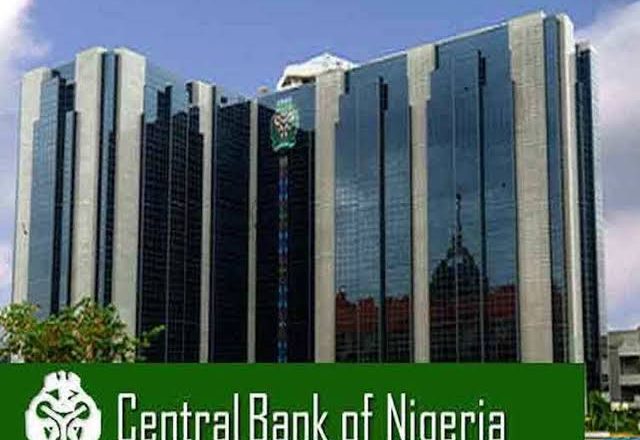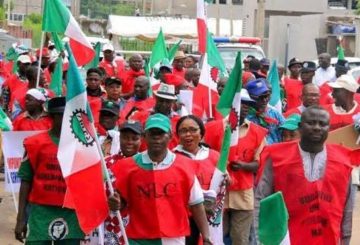
The Monetary Policy Committee of the Central Bank of Nigeria raised the Monetary Policy Rate from 13 per cent to 14 per cent on Tuesday.
Scarcely two months after the MPC, at its bi-annual meeting in May, it has raised the standard interest rate which was 11.5 per cent to 13 per cent and hardly one week after the National Bureau of Statistics put its June inflation figure for the economy at 18.6 per cent,which is the highest in five years. Inflation had hit 17.71 per cent in May, 2022.
The CBN Governor, Godwin Emefiele on Tuesday at MPC’s two days training said the new rate hike was important to ensure the economy get back to right position.
Emefiele, while in Lagos also said the MPC empathetic about the intermittent inflation.
Noting that committee’s were working tirelessly to ensure stability in price and also provide support before stability is brought to state.
He also said, “In summary, the MPC voted to increase the MPR from 13.0 to 14.0 per cent; retain the asymmetric corridor at +100/-700 basis points around the MPR; retain the CRR at 27.5 per cent; and retain the Liquidity Ratio at 30 per cent.”
“As regards tightening policy stance, members were unanimous that given the aggressive increase in inflation, coupled with the resultant negative consequences, particularly on the purchasing power of the poor, as well as retarding growth, there is the need to continue to tighten.
“However, the policy dilemma was hinged around the level of tightening needed to rein in inflation, without dampening manufacturing output, which could result from the higher cost of borrowing.”
The experts in the financial sector also state that the second hike in the lending rate at the MPC meeting insinuated a panic situation on the banking regulator with the signal of more difficult times in the economy.
Besides narrowing the negative real interest rate gap, Emefiele said members viewed that tightening would signal a strong determination of the bank to seriously tackle its price stability mandate and reflect the MPC’s sensitivity to the impact of inflation on vulnerable households and the need to improve their disposable income.
He also said members mentioned that the150 basis points hike by the committee in May 2022 had not truly penetrated the economy to the extent of curbing the rising inflation. He added that the month-on-month percentage increase in headline inflation skyrocketed speedily in June 2022 compared to May 2022.
According to MPC, other complementary administrative measures engaged by the bank to address the growth in money supply did not effectively regularise the incessant inflation.
In his words, “The Committee noted the Federal Government’s increasing debt profile and expressed concerns over debt sustainability given that global uncertainties remain elevated.
“The MPC thus reiterated its call to the Federal Government to urgently diversify its revenue sources through various initiatives, such as the development of a viable tax framework for the extractive and mineral export industries, to strengthen its fiscal buffers. ”
A professor of Capital Market and Chairman of the Chartered Institute of Bankers of Nigeria, Abuja Branch, Prof Uche Uwaleke, said, “The hike in the MPR in quick succession from 11.5 per cent to 13 per cent in May and now to 14 per cent could signal panic on the part of the CBN and heightens uncertainty.
“This policy stance may not necessarily curb inflationary pressure given the pressure is not coming from monetary factors but from high costs of petroleum products, electricity and insecurity, ditto for rising exchange rate.
“So, expect to see in the coming months higher cost of borrowing, widening government deficit, slower economic growth, rising unemployment and bearish stock market.”
Founder/Chief Executive Officer, Centre for The Promotion Of Private Enterprise, Dr Muda Yusuf also contributed that the previous hike in policy rate of 150 basis point in May did not have any significant impact on the inflation numbers.
He said, “The new MPR hike means that the cost of credit to the few beneficiaries of the bank credits will increase which will impact their operating costs, prices of their products and profit margins. The equities market may be adversely impacted by the hike.”
The Deputy-President of the Lagos Chamber of Commerce and Industry, Dr Gabriel Idahosa was not left behind as he also noted that the rate hike would amount to extreme pain for many poor Nigerians.
“Our own economy cannot stand this kind of rate hike, where you have unemployment, inflation going to 20 per cent. Manufacturers are not able to cope with current interest rates because of the cost of production. Diesel alone is sending many of them out of business. If you now add a high-interest rate, it’s not good for businesses that are already suffering from those other issues of inflation and power supply. They are supposed to do it on paper because the monetary policy says if you have inflation, you should increase interest rates.
“People in advanced countries are earning much more than they need to survive. So, when you increase rates like this, they will be able to save more. It makes sense in a mature economy, but half of the Nigerian population are currently below the poverty line, by all indices.” Idahosa said.
The Director-General of the Nigerian American Chamber of Commerce, Sola Obadimu on his part said that the managers of Nigeria’s economy failed to gather the participatory effort needed to soothe the impact of these economic realities.
“These are market forces. There’s nothing anybody can do about it. The rates will keep on increasing. Inflation will keep on increasing, naira will continue to lose value. It is inevitable. The market is just reacting to the reality of a consumer economy that is not productive in any way.
“They (businesses) are all at risk. It’s very bad for planning, for budgeting. I’m sure no industry budgeted for N700 or N800 for diesel. The fact is that the managers of the economy are not reacting appropriately to anything. They are just looking on and seeing things deteriorate without any solution in sight. That is just a tragedy. ” He narrated.
Conclusively, a professor of Economics at Covenant University, Ota, by the name, Jonathan Aremu, said, “One thing I wanted to say is that it may not be the monetary policy alone they need to adjust, but they should look into the productive sector of the economy because if it happens that there’s too much money, when there is also much goods, then the price would not increase. So, there is what we call the quantity theory of money that equates the volume of money in an economy to the volume of goods. ”
He furthered that the CBN would not be able to solve the problem of inflation by merely increasing the cost of borrowing because people, considering that people would not have sufficient money to produce goods and services to be able to afford products in the economy.
- Tags: CBN, CBN governor, Emefiele, Godwin Emefiele





